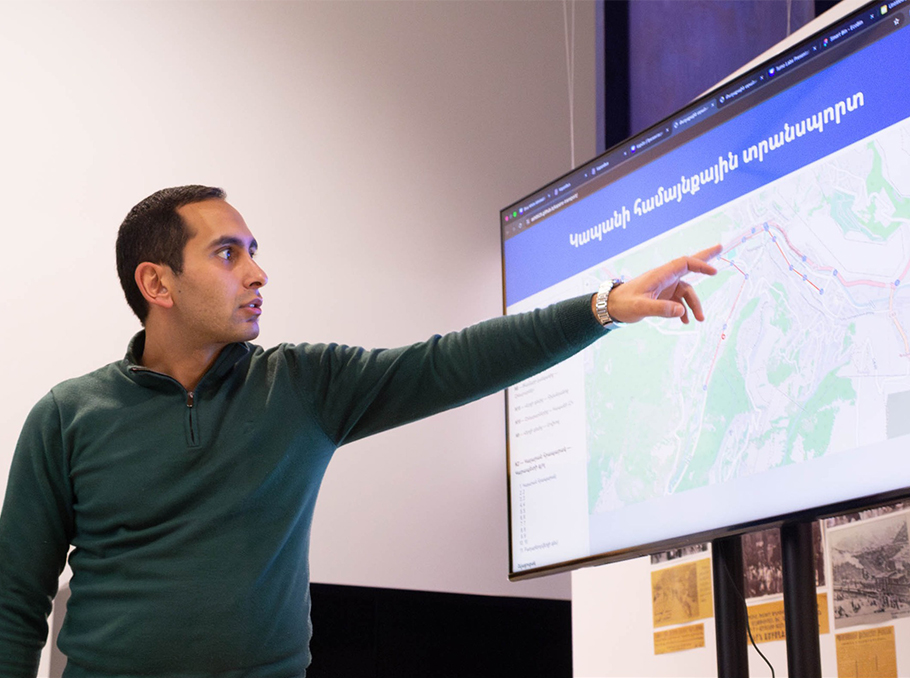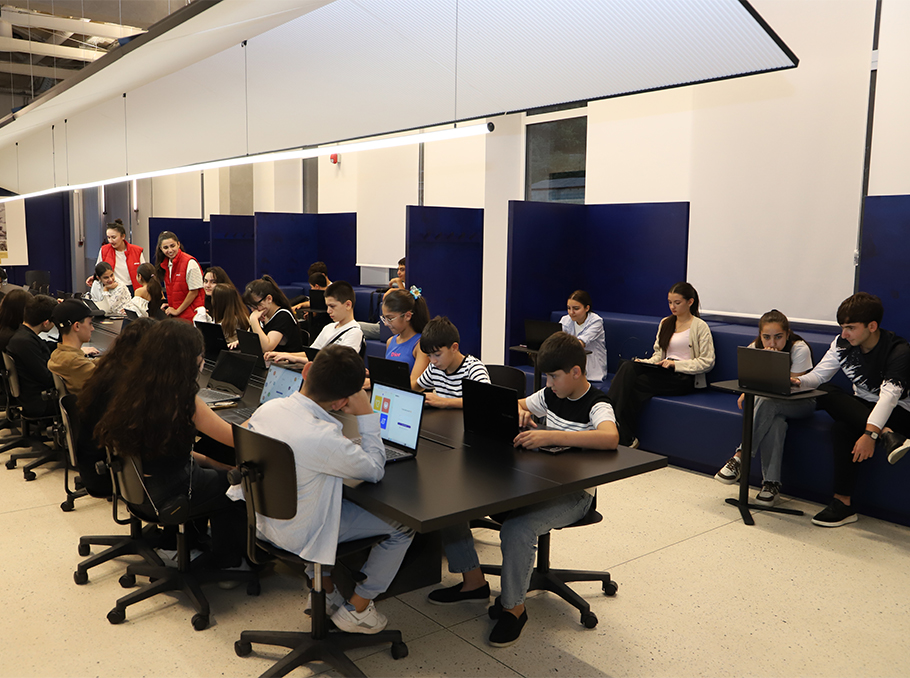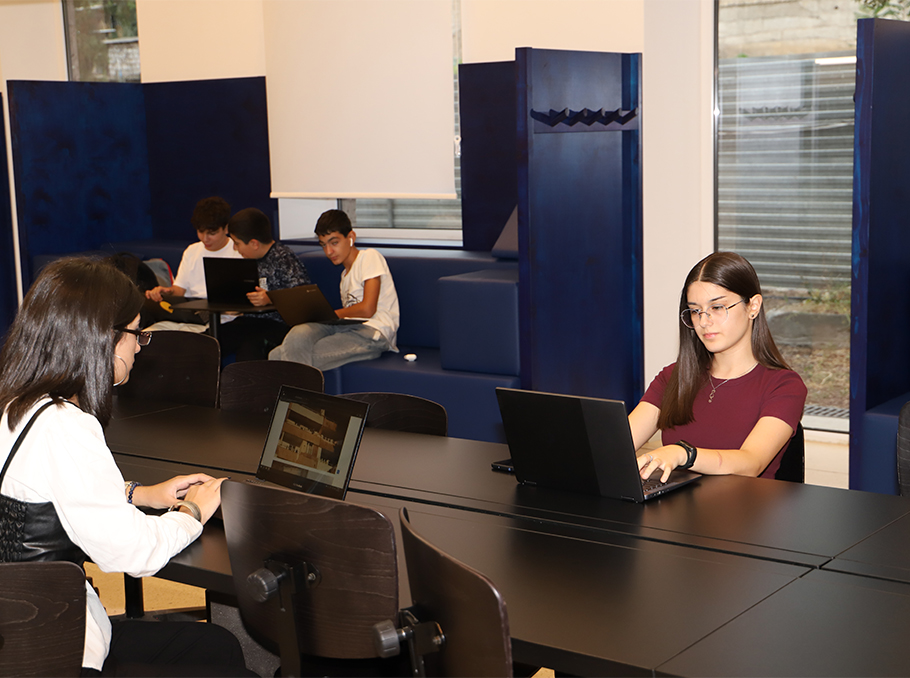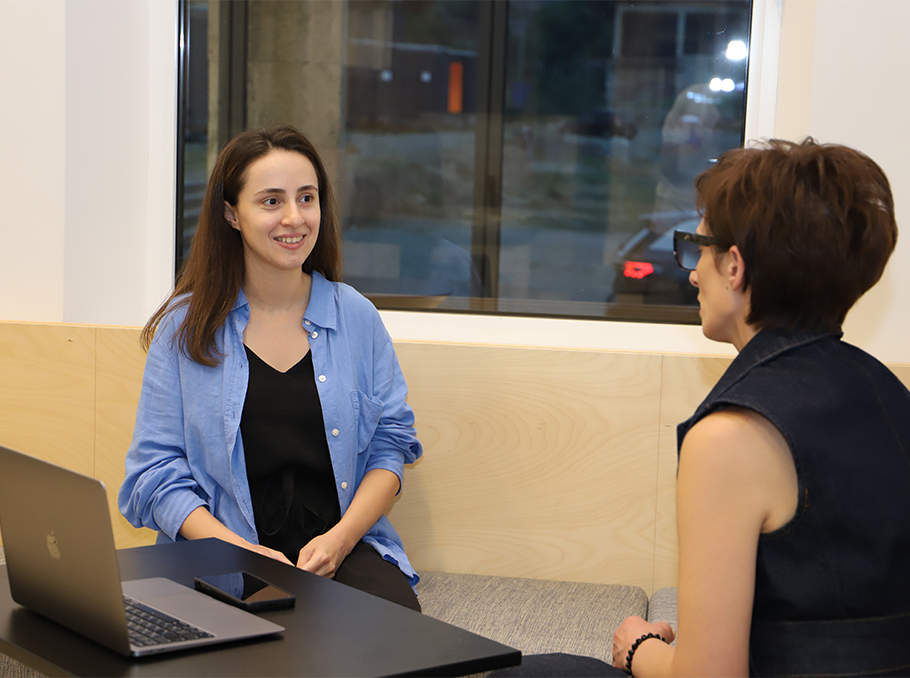Opened in March 2025 with the support of the European Union, the Tumo Centre for Creative Technologies in Kapan has become a new hub for young people in southern Armenia. The centre not only expands access to technological and creative education in the Syunik region but also serves as a bridge for regional development and community integration.
The Tumo Kapan project is implemented in partnership with the Kapan Municipality, the EU’s Resilient Syunik Team Europe initiative, and Tumo donors Judith Saryan and Victor Zarougian. Resilient Syunik Team Europe initiative is the joint undertaking of the EU, the European Investment Bank, the European Bank for Reconstruction and Development, Austria, the Czech Republic, Estonia, Finland, France, Germany, Lithuania, the Netherlands, Poland, Sweden and Switzerland. The key goal of the initiative is to promote the sustainable socio-economic development of Syunik.
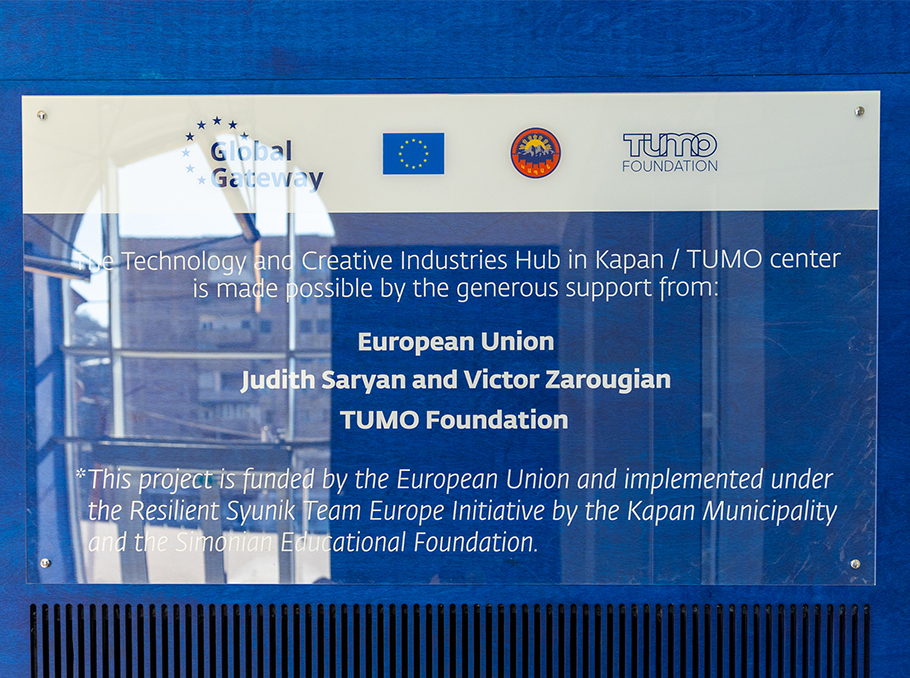
Photo: Tumo
This EU-supported initiative not only addresses the issues of access to technological and creative education on the ground, but also promotes sustainable socio-economic development of the region. In practice, this centre is part of EU’s broader efforts to empower young people in border communities and promote balanced regional development.
Tumo Kapan is housed in the historic Kapan railway station, a building that has preserved its architectural and cultural identity while being transformed into an innovative educational hub. Connected with Tumo Boxes in Meghri, Kajaran, and Goris, the centre forms a regional learning network that offers free educational programs for local youth. This territorial inclusiveness is particularly significant given the uneven distribution of educational opportunities across Armenia’s regions.
The centre is changing mind-sets
Tumo’s mission is to create life-changing learning experiences on a large scale. Founded in Armenia and now expanding globally, Tumo’s educational model offers learning in technology and design, combining self-study with hands-on courses and workshops, and prepares young people for the challenges in a rapidly evolving world.

Photo: Tumo
In Armenia, Tumo is committed to making innovative education accessible to all young people, regardless of where they live. Through its network of Tumo Centres and Boxes, the program reaches even the most remote and small communities. Tumo Boxes serve as mini-centres where students engage in self-learning activities, while practical training sessions and workshops with local and international professionals are conducted at the main Tumo hub centres, with transportation provided for participants.
EU support: An investment in the future of young people
The European Union’s support for this project goes beyond financial assistance – it embodies the vision of equal access to education, human potential development, and community sustainability. This collaboration also strengthens the EU–Armenia partnership, particularly in the country’s regions.
Tumo Kapan stands as a vivid example of how technological advancement and educational innovation can reach even the most remote corners of Armenia, bringing tangible change to people’s lives.
We spoke with students, coaches, and the centre’s director about the project’s impact. The Tumo participants recall that when they first heard about the opening of the centre in Kapan, they imagined a modern space with facilities comparable to those in the capital and encouraged their friends to join and become part of the Tumo community.
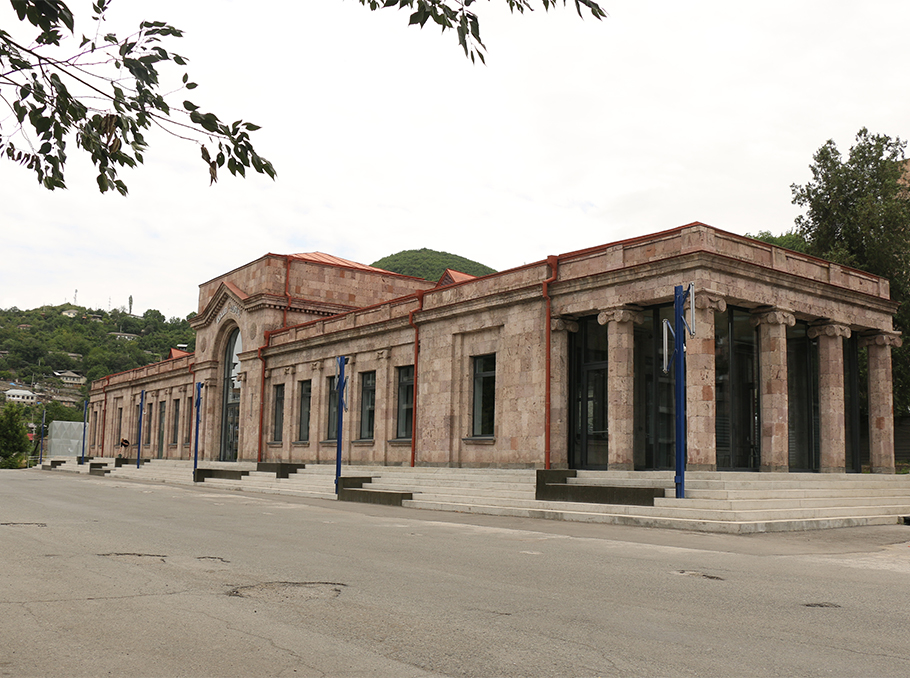
Photo: Mediamax
Seventeen-year-old Syune Jhangiryan first learned about Tumo Kapan through social media. When the first Tumo Box opened in the city in 2022 – a mini Tumo centre where students engage in self-learning activities and travel to nearby hubs for courses and workshops using free transportation provided by Tumo – she was among the first to register. “I had a clear goal to become a designer, and since one of Tumo’s learning areas is graphic design, I joined without hesitation,” she said. Decorative arts and pottery are the fields that inspire her most.
Syune is confident that the opportunities provided by Tumo will help her achieve her goals. She values the open communication with peers and mentors who regularly arrive from Yerevan to conduct workshops and classes.
Among the many courses she has attended, Syune recalls the “Memories of Kapan” workshop as the most inspiring. It combined painting and photography to tell the story of the city through personal narratives rather than well-known themes.
“We had to choose one of Kapan’s neighbourhoods, discover new stories about it, and illustrate them. I chose the Kapan Station district – the very place where the Tumo Centre now stands. When I asked my grandmother what she remembered about it, she said it used to be a lively spot full of colour – not just for arrivals and departures, but also for selling farm produce. And the best lemonade in town was sold right there at the station,” she said. Drawing on her grandmother’s memories, Syune recreated the scene through her imagination, capturing the vibrancy of the past.
“In the end, we compiled all our stories into a book. It allowed us to discover so much new information about our hometown – things you can’t find anywhere on the Internet,” she said.
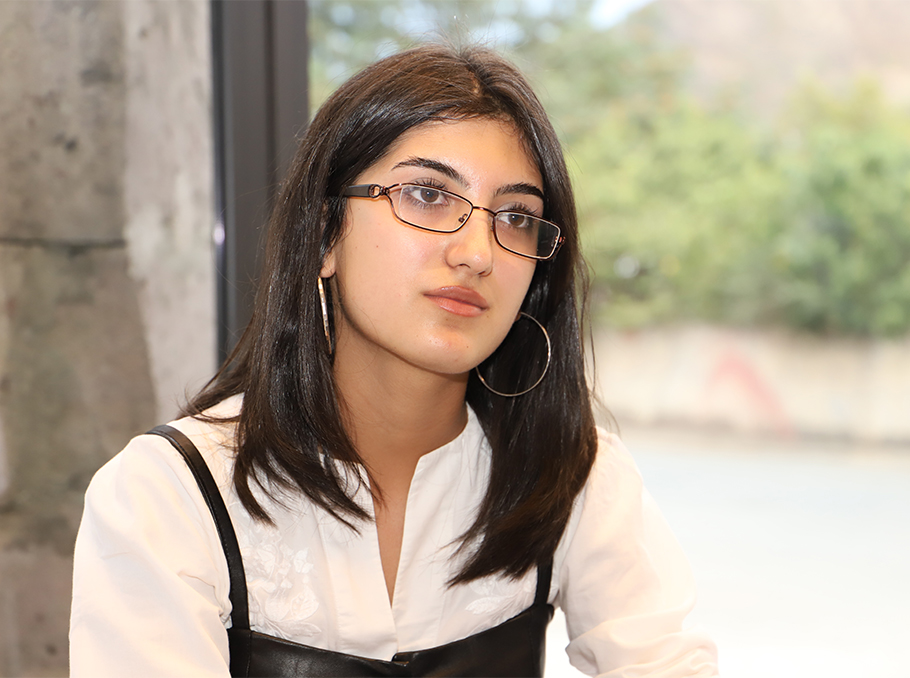 Syune Jhangiryan
Syune Jhangiryan Photo: Mediamax
Arine Israelyan, a peer of Syune’s, recalled that before Tumo opened in Kapan, her mother would often say, “If we lived in Yerevan, we would definitely go to Tumo.”
“That was years ago, when we couldn’t even imagine that Tumo would one day open in Kapan,” Arine said. “I’ve always been interested in programming, especially in the field of cybersecurity. As soon as I learned about the opportunity, I registered right away – and just a month after the centre opened, I became a Tumo student. One of my favourite hobbies is photography, and I also love taking notes.”
Arine’s passion for programming began long before the opening of the main centre. “When Tumo first launched a Box in Kapan, I used to go there, but I can’t say I was very enthusiastic at first,” she admitted. “We mostly did self-learning tasks online. But with the opening of new Boxes and the main centre, everything changed – our motivation grew, and now Tumo is an integral part of my life.” “If it weren’t for Tumo, our days probably wouldn’t be so exciting. It has changed a lot for us, especially in terms of professional orientation. Here, I discovered data science, and I’ve twice participated in data science workshops on climate change, led by a specialist from the United States.”
Arine also emphasizes how much her communication skills and analytical thinking have improved.
“Tumo has given me wonderful friends, a new environment, and many interests I had never even considered before,” she added. “It’s like a big family for us – united, supportive, and full of energy. Everyone in Kapan knows the Tumo students. You can often see us on the streets with our cameras, working on assignments or creative projects. If you come across an active group of young people gathered around an idea – they’re definitely from Tumo.”
Opportunity for high-quality education
Anush Mezhlumyan, head of Tumo Kapan, noted that since the centre’s opening, local youth have shown remarkable enthusiasm. Students actively participate in self-learning sessions, courses, and workshops – and a clear growth is already visible, both in their self-confidence and creative skills.
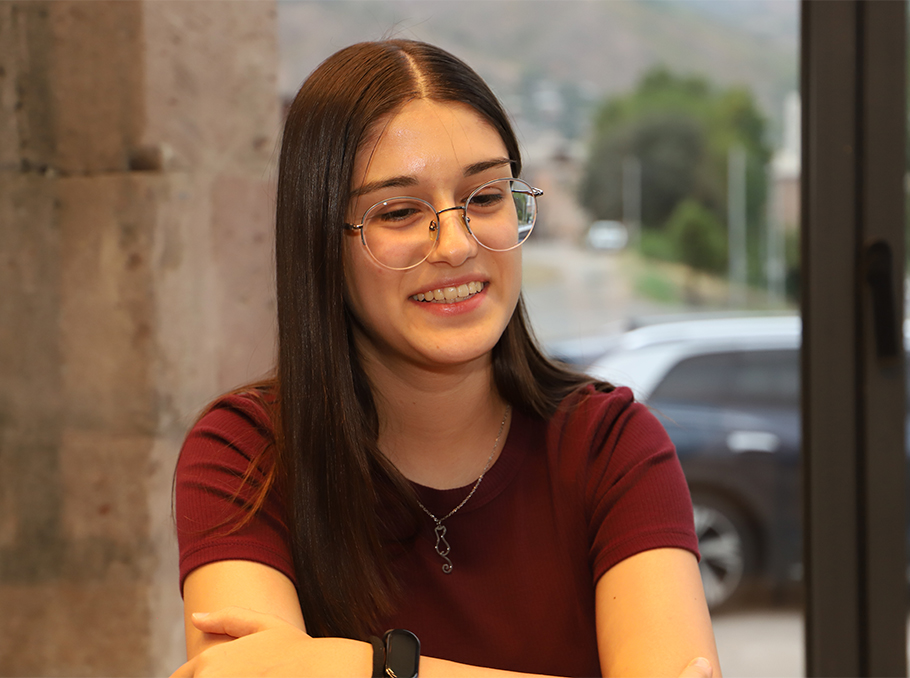 Arine Israelyan
Arine Israelyan Photo: Mediamax
“Tumo provides access to high-quality education, reaching even the most remote communities in the region and helping students with professional orientation,” said Mezhlumyan.
Enrolment at Tumo is open year-round for young people aged 12 to 18. During the first month – the orientation phase – students explore the learning environment, select four out of fourteen available fields in technology and design, and begin shaping their individual educational paths.
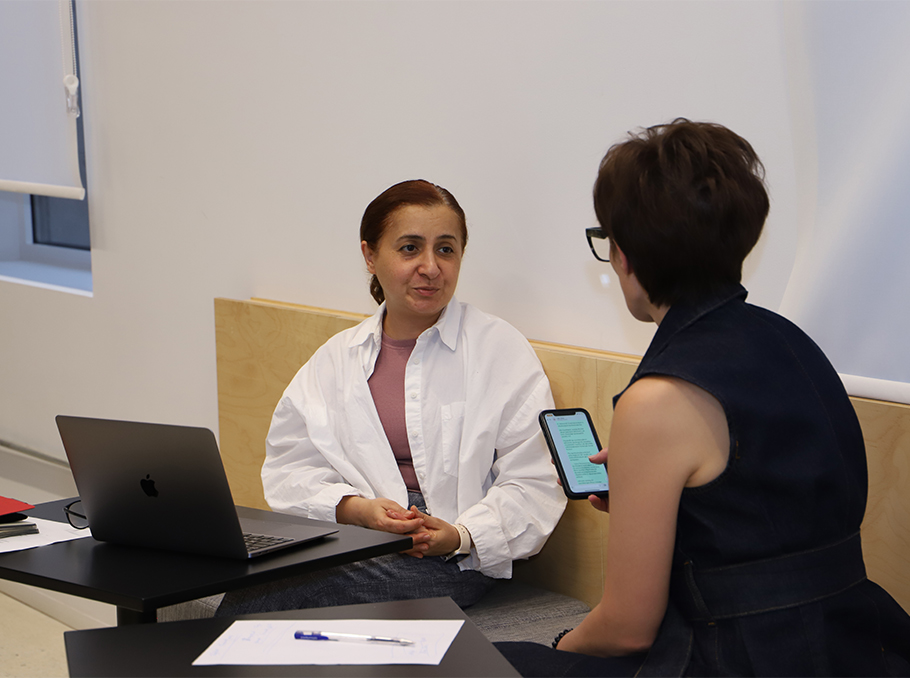 Anush Mezhlumyan
Anush Mezhlumyan Photo: Mediamax
According to Mezhlumyan, Tumo students tend to excel not only in academics but also in personal development and career planning. Initially, people in Kapan viewed Tumo mainly as a centre for students interested in programming. Now perceptions are changing. Parents are often surprised to see that a teenager who once focused on coding suddenly develops a deep interest in a completely different field – while also improving communication and self-expression skills.
The educational space of Tumo Kapan is also expanding. Construction is currently underway, and soon new buildings planned for the project will be put into operation for students. In the meantime, the learning process continues in temporary Tumo Boxes operating adjacent to the main building.
Tumo is also a special environment
According to Ruzanna Grigoryan, program manager at Tumo Lab Kapan, the centre offers a unique experience not only for young people but for the entire community. The Tumo Lab program – implemented in cooperation with the European Union – is already active in Kapan.
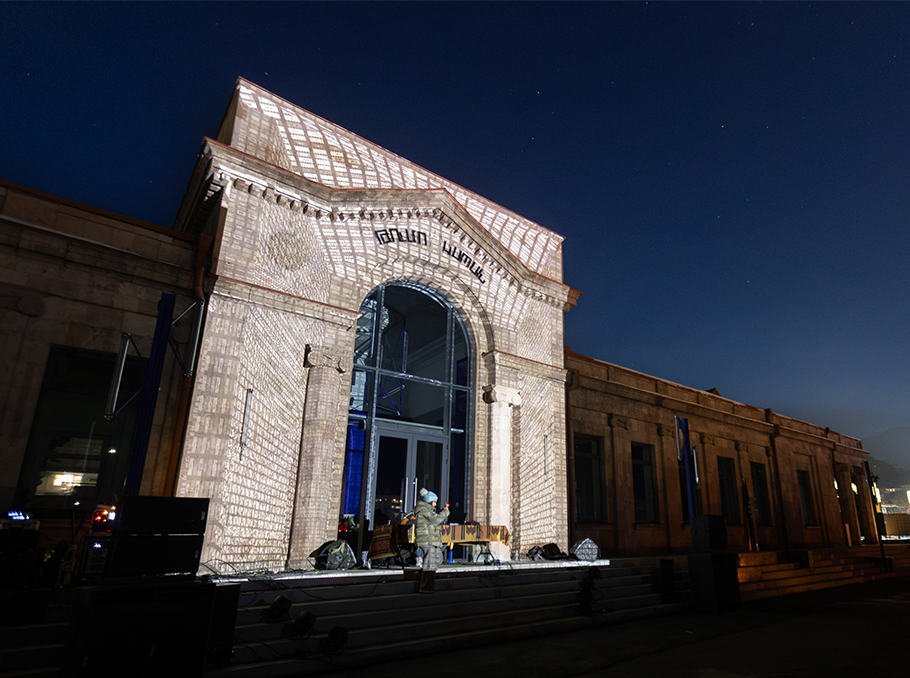
Photo: Tumo
Designed for individuals over 18, the program provides practical, project-based learning in the fields of technology, science, and engineering. The first stage launched in Kapan was the guided self-study program, which allows participants to learn machine learning, as well as Python or JavaScript programming from scratch – all free of charge. Interested learners can register online at tumolabs.am. In addition to training, the building features modern spaces adapted for events, collaboration, and continuous learning.
Lilit Israelyan
Photos by Alexan Grigoryan
“The Resilient Syunik Team Europe” initiative is the joint undertaking of the European Union, the European Investment Bank, the European Bank for Reconstruction and Development, EU Member states - Austria, Czechia, Estonia, Finland, France, Germany, Lithuania, the Netherlands, Poland, Sweden, and Switzerland also joining as an external partner. The initiative aims to contribute to the sustainable socioeconomic development of the Syunik region.
This article was published with the financial support of the European Union. Its content is the sole responsibility of Mediamax and does not necessarily reflect the views of the European Union.









